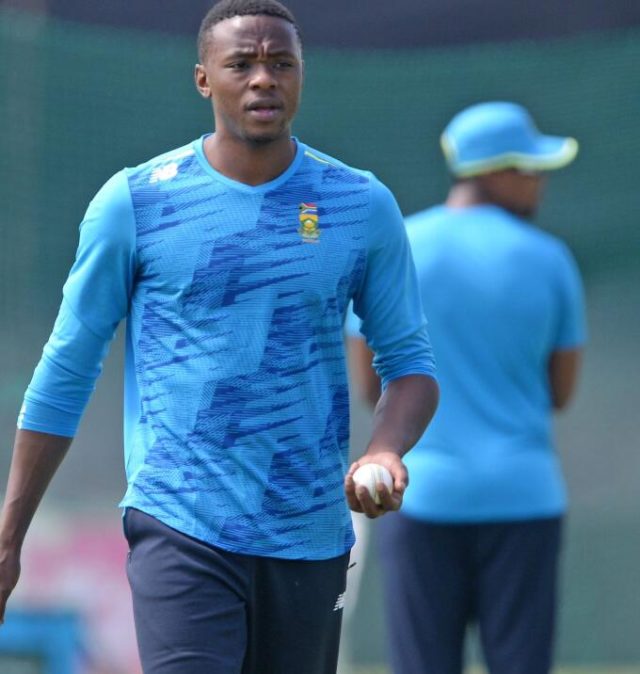Proteas speedster Kagiso Rabada is raring to go at the Pakistan batsmen when the two teams meet in the first Test next week.
JOHANNESBURG – Low bouncing pitches with no lateral movement have been the order of the day at South Africa’s training sessions in Pakistan this week.
It’s what they had anticipated, and it has demanded the players to make the necessary adjustments, according to Kagiso Rabada, which also include getting to grips with reverse swing.
That was anticipated too, with Mark Boucher explaining before the team’s departure that there’d be a crash course for everyone; batsmen in how to play it, but especially the young bowling unit, in how to control the reverse swinging ball.
Boucher had highlighted Rabada and bowling coach Charl Langeveldt – described by the head coach as a “master” of reverse swing – as being critical to the players making those adjustments.
“We suspect reverse swing will play a role,” said Rabada. “As bowlers we have to bowl straighter lines, there’s not much lateral movement. We are not sure about how the venues will play, we have an idea but we have to see what is offered to us at the stadium.”
ALSO READ: Quinton de Kock better at No.7 but happy to bat at No.5 for the Proteas
Rabada last played at the end of November in the second T20 International against England in Paarl. He picked up a hip injury and missed the subsequent Test series with Sri Lanka. He could have played the second Test, but the South African team’s trainers were being more careful than usual in allowing him more time to recuperate.
Fast bowlers in particular need to be managed carefully, for it is not just fitness that matters, but increasing bowling loads so that they are properly prepared for Test match play especially.
It was a lesson learned in that Sri Lanka series where a number of their bowlers picked up muscular ailments and was reinforced by what took place with India’s quicks in Australia as well.
Rabada declared himself ready, for what he termed his favourite format of the game. “The bowlers have been doing their strength work and their flexibility work. There is so much data available these days to allow us to know what we have to do and when.”
ALSO READ: Proteas use training time wisely in Pakistan
“My body is feeling good, I have to manage it over time and not let the same things happen over and over. I feel good at the moment.”
Pakistan may have lost badly in New Zealand, with the players and coaching staff, enduring a lot of criticism subsequently, but they are a very talented side, for which a first home series in a year will be inspirational.
“I expect Pakistan to come out fighting. They’ve got some good players, it’s not going to be easy. It’s definitely going to be a series in which we have to earn the right to win,” said Rabada.
The series provides South Africa with an opportunity to build on the confidence gained by beating Sri Lanka – the Proteas’ first Test series win in two years. “We know we can beat any team in the world. We are in a rebuilding phase, I think our future looks extremely bright. It’s a totally new team with young energy, it’s really exciting. We definitely have the belief we can do it.”
Rabada needs three wickets to become the eighth South African to claim 200 Test wickets, and doing so in a country with a rich history of fast bowling, would make achieving that landmark there a bit more special.
“I’m glad I can say I got the chance to tour Pakistan because they have a prestigious place in international cricket,” said Rabada.
“This is the only country I haven’t been to. They’ve had some greats of the game, it’s nice to be in the area where they come from and nice to play this team in their own conditions.”
The first Test starts at the National Stadium in Karachi on January 26.
@shockerhess








